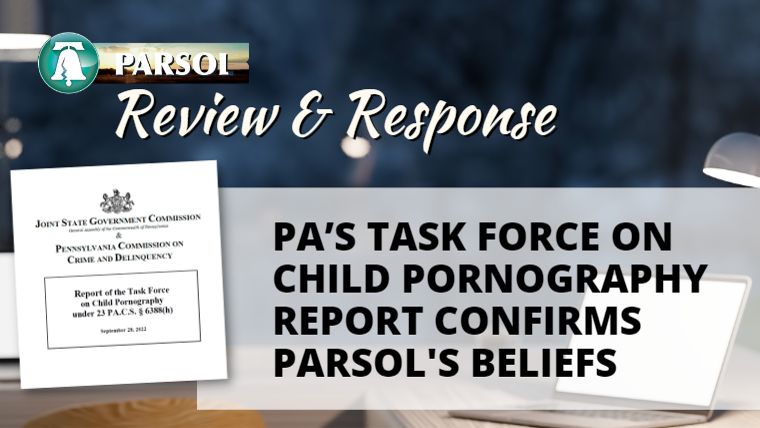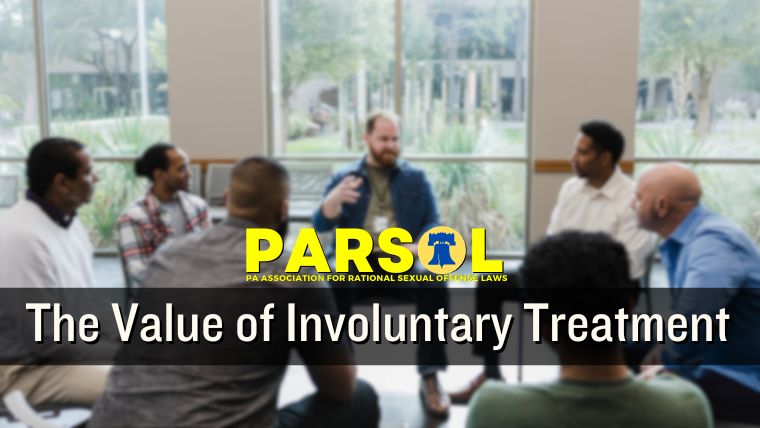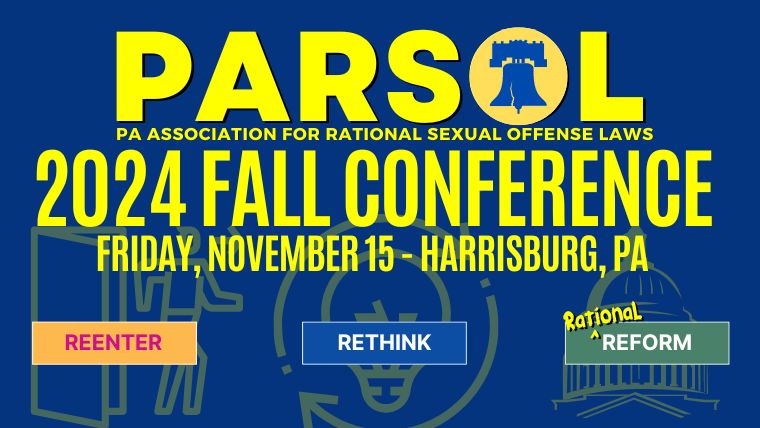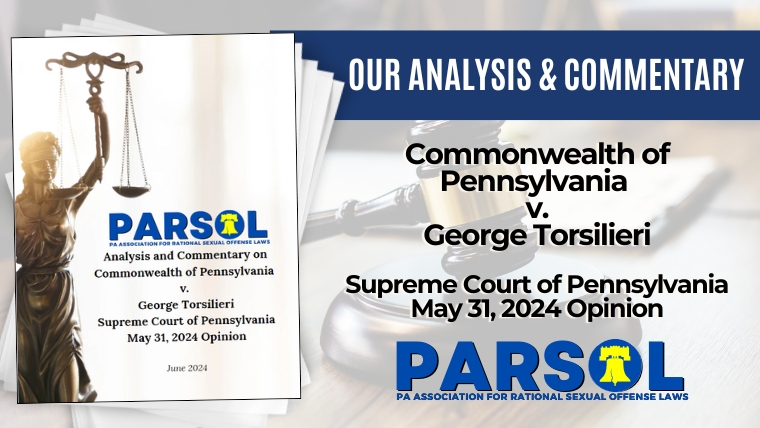The Pennsylvania General Assembly passed Act 53 of 2021 on June 30, 2021. Act 53 did two things:
- It enhanced the sentencing penalty on child pornography; and
- It established the Task Force on Child Pornography (TFCP).
The Task Force’s Recommendations
The TFCP was comprised of legislators, law enforcement officers, prosecutors, victim advocates, and psychologists. Together, they examined the sentencing of crimes related to the offense of child pornography in 18 Pa.C.S. § 6312, reviewed surveys and data analyses, and collected information from professionals in the field. After a year-long review, the TFCP released their final report on September 28, 2022 making five recommendations.
Unfortunately, rather than announce the report’s publication, it was quietly shared on the PCCD website on a page originally used to publish technology and financial audits. We regret not finding this report sooner, and strongly suggest the Commonwealth announce and publish these reports openly. You can get the full report at that page: Judicial Computer System Financial Audit Committee Report.
The five recommendations are as follows:
1) “Current Pennsylvania laws and regulations that use the term ‘Child Pornography’ should be amended to replace that term with ‘Child Sexual Abuse Material.’ … Outside of the legal system, most experts refer to these images as “Child Sexual Abuse Material,” arguing that this term more accurately reflects what is depicted in these illegal images,” pg.37.
2) “Improve access to training for law enforcement officers through the Municipal Police Officers’ Education and Training Commission (MPOETC) and the Pennsylvania Chiefs of Police Association on how to investigate and prosecute these crimes. Provide targeted funding to build capacity within local police departments, the Pennsylvania Office of Attorney General, the Pennsylvania State Police and District Attorneys’ Offices that includes the establishment of specialized units, technology, training, and increased complement that would result in greater investigative capacity,” pg.37.
3) “ Improve access to training and equipment for county probation departments to utilize in the supervision of convicted § 6312 offenders. … Specialized training relating to the community supervision of § 6312 offenders is not widely available. While some counties have specially trained probation and parole officers and utilize multi-disciplinary teams to share resources between investigators and probation officers, other counties do not have access to the same resources,” pg.38.
4) “Relevant stakeholders such as the Administrative Office of Pennsylvania Courts and the Sexual Offender Assessment Board should encourage both general and targeted education and training opportunities for judges and prosecutors regarding the legal requirement for and benefits of the SOAB Assessment. Pursuant to law, 100% of offenders who are convicted of 18 Pa. C.S. § 6312 should receive an evaluation by the Sexual Offender Assessment Board to determine whether the offender should be designated as a Sexually Violent Predator (SVP). Between 2014 and 2021, 81% of cases with a conviction had a court order requiring assessment. Targeted training for counties that send assessments at a lower rate may be necessary to improve compliance with the law,” pg.38.
5) “Relevant stakeholders such as the Sentencing Commission, the Administrative Office of Pennsylvania Courts and the Pennsylvania District Attorneys Association should encourage education and training opportunities for prosecutors and judges regarding the availability and opportunities for use of sentencing enhancements and other tools when evaluating § 6312 cases. … While some counties use enhancements in nearly every case, 41% of counties did not use any enhancements in a three-year time frame,” pg.38.
Response to Task Force Report
Already in response to the first recommendation, Senator Judy Ward introduced SB186 entitled Updating Pennsylvania’s Statutes to Fight Exploitation of Children. According to the Senator’s Memorandum, “[t]his legislation amends Title 18… of Pennsylvania Consolidated Statutes and Act 197 of 2004… by replacing the term ‘child pornography’ with ‘child sexual abuse material.’” We would also suggest that 18 § 6312 “Sexual Abuse of Children,” be renamed “Child Sexual Abuse Materials” to accurately reflect the nature of the crime.
We gleaned some interesting facts from this report that show low recidivism among individuals convicted of § 6312.
- “In Pennsylvania, between January of 2014 and October of 2021, there were a total of 2,989 criminal cases filed charging one or more counts of § 6312, averaging approximately 385 cases filed per year” pg.6.
- “From 2014-2020, of the 885 individuals in the study who were charged with violations of § 6312, less than 4% were rearrested within a year” pg.11.
- “From the subset of 578 offenders charged with violations of § 6312 from 2014-2018, less than 10% were rearrested within three years.*** Those charged with violations of § 6312 in 2019 and 2020 are omitted from the 3-year arrest rate data because at the time of the study three years had not transpired since the violations were charged” pg.11.
- “Stated conversely, there was no recidivism at one year for 96.2% of these offenders and no recidivism at three years for 90.5% of these offenders” pg.11.
The data consistently shows, across the board, that Persons Forced to Register (PFR) are a low risk to society. The TFCP proposed, “low-risk offenders should receive low-intensity consequences and treatment instead of high-intensity consequences and treatment because the wrong matching can increase the risk of recidivism” pg.10. They have acknowledged, “Across any type of crime, an increase in age reduces the risk of recidivism. Treatment and community supervision also reduce the risk of recidivism as do the presence of protective factors,” pg.11. They included as a footnote, “protective factors are prosocial, e.g., employment, housing, constructive social and professional support, good problem solving, etc. Protective factors tend to be reduced the longer a person remains imprisoned.” This is what PARSOL and other like-minded advocates have been saying all along. It’s another nail in the coffin for the legislative fear-mongering, “[s]exual offenders pose a high risk of committing additional sexual offenses,” Title 42 § 9799.11.
In addition to breaking the “frightening and high” myth, they also busted the “stranger danger” myth saying, “[a]mong the count of actively traded images (and videos) for which the relationship between the offender and the child was known, nearly 44% involved a parent, guardian, neighbor or family friend,” 2021 CyberTipline Reps. by Elec. Serv. Providers, https://www.missingkids.org/content/dam/missingkids/pdfs/2021-reports-by-esp.pdf (2022). pg.13. What about the other 56%? As a footnote on page 20 we read, “[i]nvestigators have noted an increase in the number of tips that are ‘self-generated’ videos and images of children that are not criminal in nature, but that require investigative resources to contact the families whose children have produced the material for education about the dangers of this type of activity,” (emphasis added). Here’s the problem with trying to contact and the families, “[the National Center for Missing and Exploited Children] report[ed] that in 2021, 93.5% of the child sexual abuse material reports that they received resolved to locations outside of the U.S.,” pg. 19.
Another common myth is that all “sex offenders” are “pedophiles”. The TFCP said that is incorrect as well, “‘[p]edophiles’ can be attracted to both adults and children of any gender, or exclusively children. Not everyone who views child pornography is a ‘pedophile’,” pg.26. One more, what about the registry is effective at prohibiting “predatory” crimes? Here again, they confirmed that those who possess child sexual abuse materials “are more likely to be first-time offenders and have pro-social lives and therefore, when under supervision, are significantly less likely to miss treatment appointments, drop out of treatment and fail with community supervision” pg.10.
Conclusion
The TFCP Report confirms everything that we’ve been saying for the years! Remember that this task force was commissioned by the PA General Assembly and comprised of PA legislators, law enforcement officers, prosecutors, victim advocates, and psychologists (notably from the Sexual Offenders Assessment Board). The tide is turning. The experts have spoken. Now let’s bring this information to the legislature for further changes in the law.




